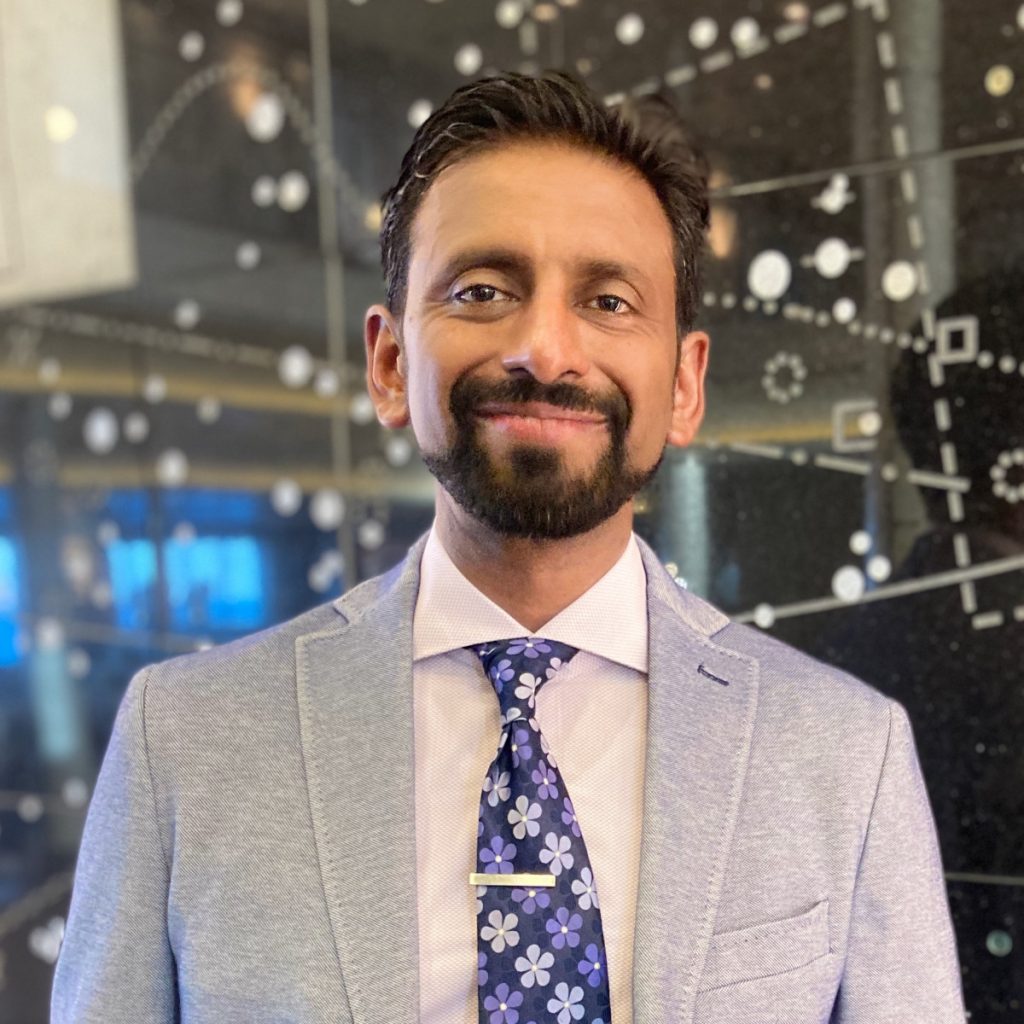
James Buckser
Staff writer
Dr. Darshan Mehta sees more and more healthcare professionals burning out.
An assistant professor of medicine and psychiatry at Harvard Medical School; director of education at the Osher Center for Integrative Medicine at Brigham and Women’s Hospital; medical director of the Benson Henry Institute for Mind Body Medicine; and Director for the Office for Well-Being at Massachusetts General Hospital, Mehta has spent his career working to help not just patients in need, but also the people who help them.
Mehta will speak on medical burnout, faith, and staying “sustained” in healthcare at 2 p.m. today in the Hall of Philosophy, closing out the Interfaith Lecture Series’ theme “Health and Faith: Considering the Center of Wellbeing in America,” in partnership with Interfaith America.
Mehta said faith and medicine are “interlinked.” When working with patients, he said medical professionals try to help patients live as well as they can, increasing “health span” – not just lifespan.
“We are dealing with issues around suffering, meaning and purpose, trying to live in the best possible way,” Mehta said.
Part of Mehta’s work is on complementary and integrative medical theories, which he said refers to “practices and systems of medicine that are not traditionally considered part of allopathic medicine,” including acupuncture, traditional Chinese medicine and naturopathy. Mehta said while many people make use of these methods, they don’t always tell their healthcare providers.
“Many of these practices do have utility for good health,” Mehta said. “We want people to incorporate the good – we also don’t want them to be unsafe, so leave out the bad, – and then study the things that we don’t know about.”
One of the better known parts of Mehta’s work is as the medical director of the Benson Henry Institute for Mind Body Medicine. There, he confronts some more emotional needs of his patients.
“I work with patients in contemplative practice and its role in health and all sorts of health outcomes,” Mehta said, “(which is) anything from blood pressure to thinking about, obviously, conditions like anxiety and depression, and how do you have improved cancer outcomes and such.”
Faith can also play a role for the healthcare provider, Mehta said, in figuring out how to heal the physical, emotional and spiritual body.
He said while there are medical professionals focused on the physical and emotional body, “very few will look at the spiritual body.” Mehta also worries about the providers’ own wellbeing, and what he calls “the wounded healer.”
“Healthcare providers are burning out at rates that are just not sustainable,” Mehta said. “We are losing people in the healthcare workforce.”
In his talk, Mehta will use his own narrative and an interfaith perspective to engage with this problem and confront the “disastrous consequences” it has.
“How do we actually stay sustained in this profession?” Mehta said. “And how does faith play a role in keeping ourselves sustained?”
Mehta hopes people leave his talk thinking about the “human-ness” of healthcare workers, which he says came to light especially during COVID.
“They have fears, they have struggles, they suffer,” Mehta said. “What is our responsibility as a society to keep the healthcare workforce sustained?”




